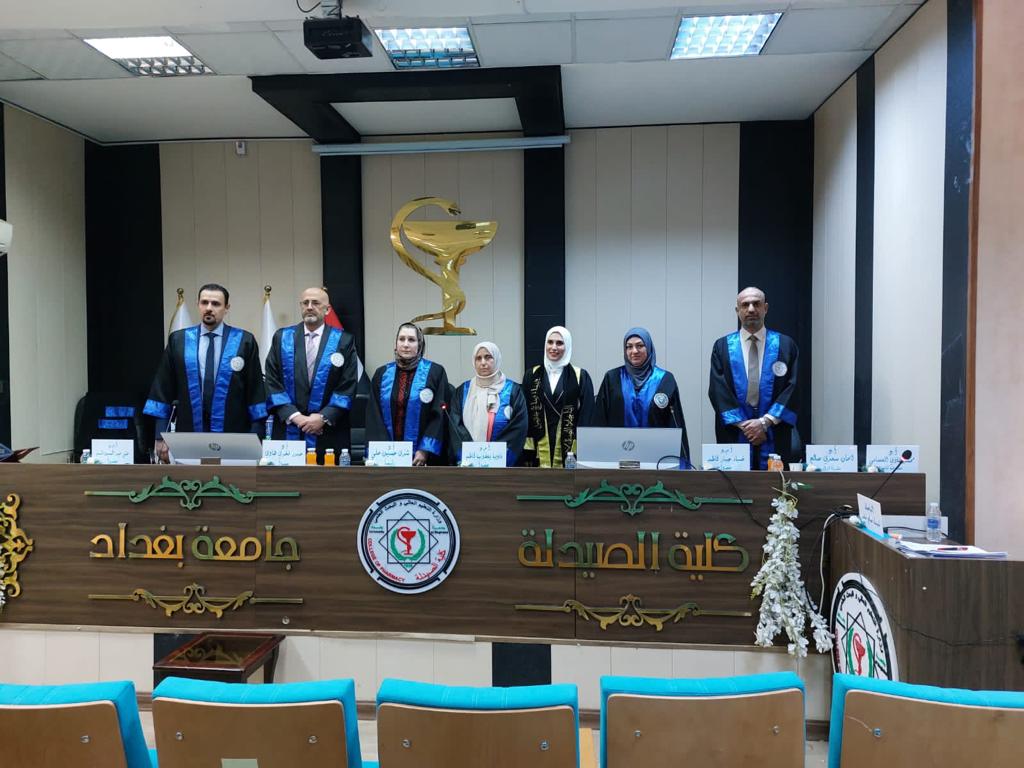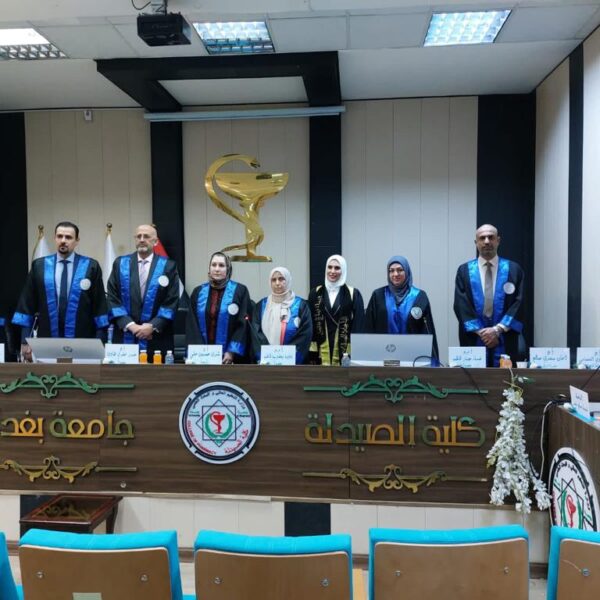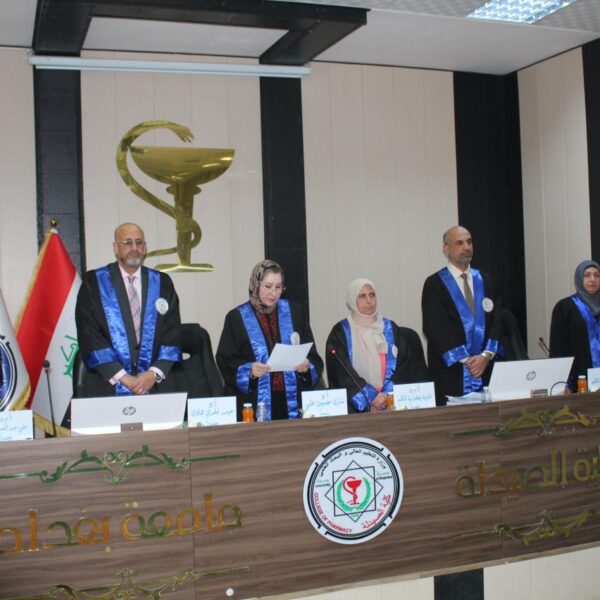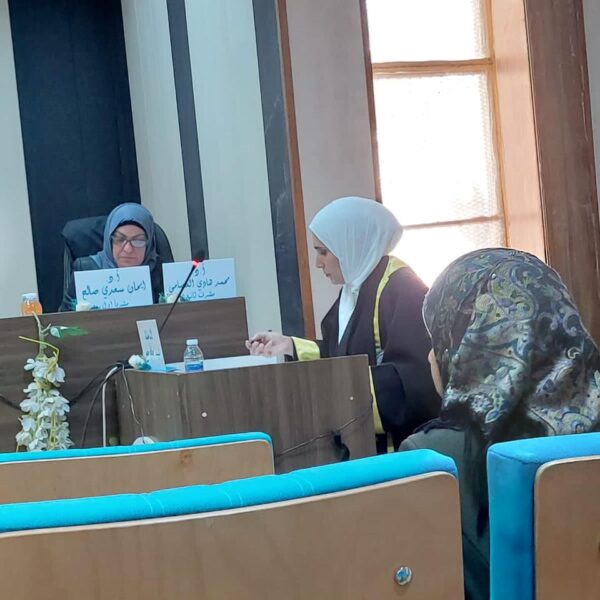The Faculty of Pharmacy discussed the doctoral thesis entitled ” The Association between Polymorphisms within Gene Coding for Tumor Necrosis Factor-Alpha and its Receptors with Outcomes of Treatment with Etanercept in A sample of Iraqi patients with Ankylosing Spondylitis “by student Shaimaa Saleh Khudhur in the Department of Clinical Pharmacy, supervised by Prof. Dr. Eman Saadi Saleh and Prof. Dr. Mohammed Hadi Alosami. The thesis included the use of the Sanger technique to determine the presence or absence of genetic polymorphisms in the promoter region of TNF-alpha and its receptor genes (TNFRSF1A and TNFRSF1B). The study aimed to examine whether the genetic polymorphisms within the promoter region of TNF-alpha and its receptors affect the response to etanercept treatment, as well as to investigate the possible relationship between the genetic polymorphisms and disease activity and functional indices in patients with ankylosing spondylitis. The study also examined the relationship between the levels of TNF-alpha and hs-CRP and disease activity and functional indices after treatment. The study proved that the presence of certain genetic variations specifically the TT genotype of rs1799964 and the TT genotype of rs1061622, is associated with a higher likelihood of responding to treatment with etanercept in Iraqi patients with Ankylosing Spondylitis. On the other hand, the TC genotype of rs1799964 and TG genotype of rs1061622 were found to be associated with a higher risk of non-response to etanercept. These findings suggest that testing for these specific genotypes before starting treatment with etanercept may be useful in predicting response to treatment in AS patients. Additionally, this study found that levels of TNF-α and high-sensitivity C-reactive protein in the blood were positively correlated with disease activity and functional impairment in AS patients receiving etanercept treatment.





